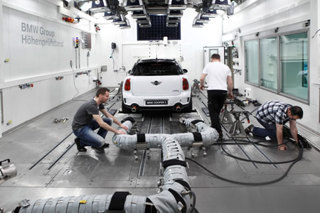The DVLA’s decision to remove information from V5 log books could lead to an increase in fraud on used vehicles, according to Cap HPI.
However, the Government Agency has told Fleet News that "there is no reason" why the changes it has introduced should inrease the risk of any wrongdoing.
The change to the existing format of the V5c document, made by the DVLA with immediate effect, sees the removal of previous keeper details.
The DVLA has made the move to protect consumers’ personal data, as part of its commitment to the new GDPR legislation, but, the knock-on effect could also have a direct financial impact on the dealer network and, potentially, wider repercussions on the automotive industry as a whole, claims Cap HPI.
Dealers follow a due diligence process before purchase when conducting a mileage investigation in order to ensure they avoid buying a vehicle with a tampered odometer. It reduces the dealer’s exposure to financial risk and helps protect their public reputation, it said.
The positive knock-on effect, added Cap HPI, is that this helps the entire industry to reduce vehicle fraud.
It claims DVLA’s move to limit previous keeper information on the V5c to only the current keeper means that where a full mileage investigation is required, Cap HPI and all other suppliers to the industry must now contact DVLA for the previous keeper details as part of the investigation process. A process for which the DVLA makes a charge.
Existing V5c documents are unaffected until they are updated and re-issued by DVLA, at which point the previous details are then removed.
Cap HPI believes this now opens up the market to a higher risk of fraud. The company’s HPI Check data has identified one in 16 vehicles have a mileage discrepancy, a one in three chance of uncovering a hidden problem and one in five cars has had a plate change.
Wendy Swaine, head of retail at Cap HPI, said: “We appreciate the DVLA will be mindful of more stringent data protection legislation recently introduced. However, the change has many impacts on the way in which a mileage investigation is conducted as part of a HPI check or comprehensive manufacturer approved check. This change could have broader implications for the dealer network.
“With the potential of increased cost to dealers, there is a risk that some may opt to forego a mileage investigation, opening themselves up to accidentally making a risky purchase, and then potentially being hit by the reputational damage to their business when the fraud is uncovered.
“It’s potentially a double whammy for dealers, the industry and the consumer, which is why we are urging the DVLA to look at the wider ramifications.”
However, a DVLA spokesman told Fleet News: "We have made changes to the way we release previous keeper details from our records – only releasing information where there is evidence that it is needed for a legal reason.
"In line with these changes we reviewed the process of automatically including the previous keeper details on every V5C, or log book, when we send it to the new keeper.
"There is no reason why removing the previous keeper from the V5C should result in an increase in fraud involving used vehicles.
"The law allows the DVLA to provide previous keeper details in order to assist mileage companies to investigate where mileage fraud is suspected. This process has not changed with the removal of the previous keeper details from the V5C.”
Mileage data is recorded when a vehicle undergoes a MOT, the spokesman explained. This information can be obtained by checking the MOT status of a car on www.gov.uk/check-mot-history.
He continued: "We believe the processes in place strike the correct balance between protecting the personal data of our customers while maintaining the availability of information about vehicles to those with a legitimate right to receive it."
Cap HPI is updating the input screens based on the style of V5c applicable to that vehicle. It means only those fields which can be completed as per the information supplied by the DVLA will be shown based on the V5c issue date.
It will also add all keeper disposal dates to the HPI Check to allow buyers to make a more informed buying decision.




















Gordy - 04/07/2018 13:51
So how do we get DVLA to reverse this decision whilst maintaining data protection? Previous keepers are a fact of life. Draconian and Ill-conceived changes like this are a change for the worse and play into the hands of criminals and organised crime. DVLA, change back now please.